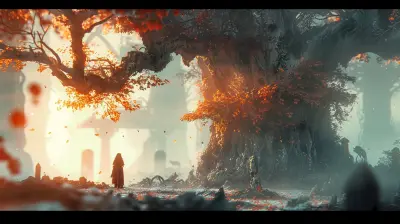The Role of Nostalgia in Keeping Retro Games Alive
14 July 2025
Ah, nostalgia. That bittersweet wave of emotion that gently rocks us back to simpler times—times when life felt easier and gaming was… well, magic. There’s something undeniably captivating about revisiting the past, especially when we're talking about retro games. Whether it’s the chiptune music of Super Mario Bros. or the pixelated artwork of The Legend of Zelda, retro games tug at our heartstrings in a way modern games often can’t.
But why is nostalgia such a powerful force when it comes to keeping retro games alive? And how does it elevate old-school classics from dusty cartridges to timeless treasures? Grab a snack, because we’re diving deep into this beautiful connection between our memories and the 8-bit worlds we love so much. 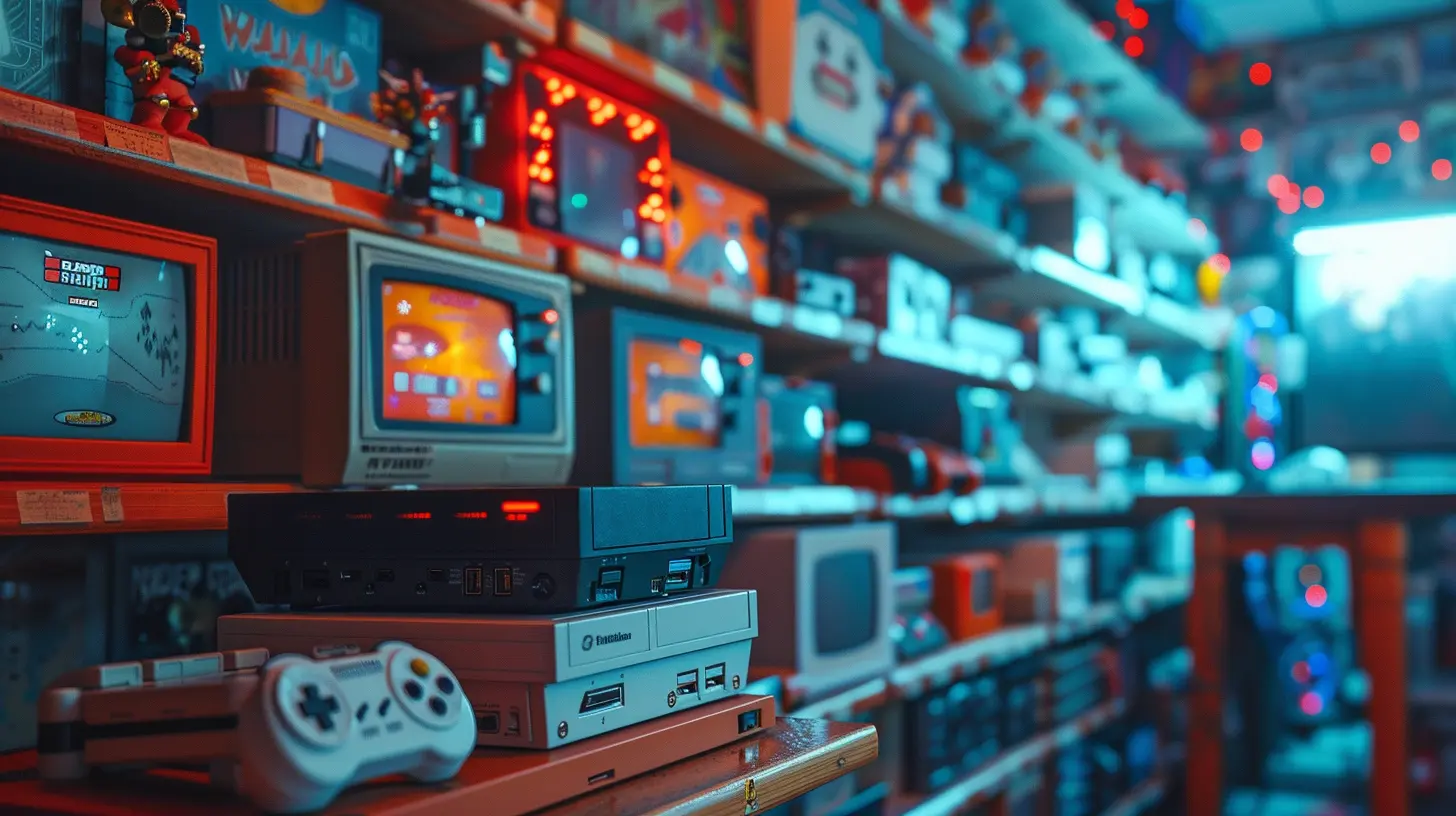
What Exactly Is Nostalgia?
Before we dive into gaming specifics, let’s take a moment to understand what nostalgia actually is. Basically, it’s that warm, fuzzy feeling you get when you think about the good ol’ days. It’s like hugging a memory—or hearing a song that instantly teleports you back to being a kid with no responsibilities.With retro games, nostalgia runs deep. For many of us, these games were more than just entertainment. They were milestones. They marked Christmas mornings unwrapping a shiny new console or late-night gaming marathons with friends. Every pixel, every sound effect, every cheat code we memorized—it all holds a special place in our hearts. 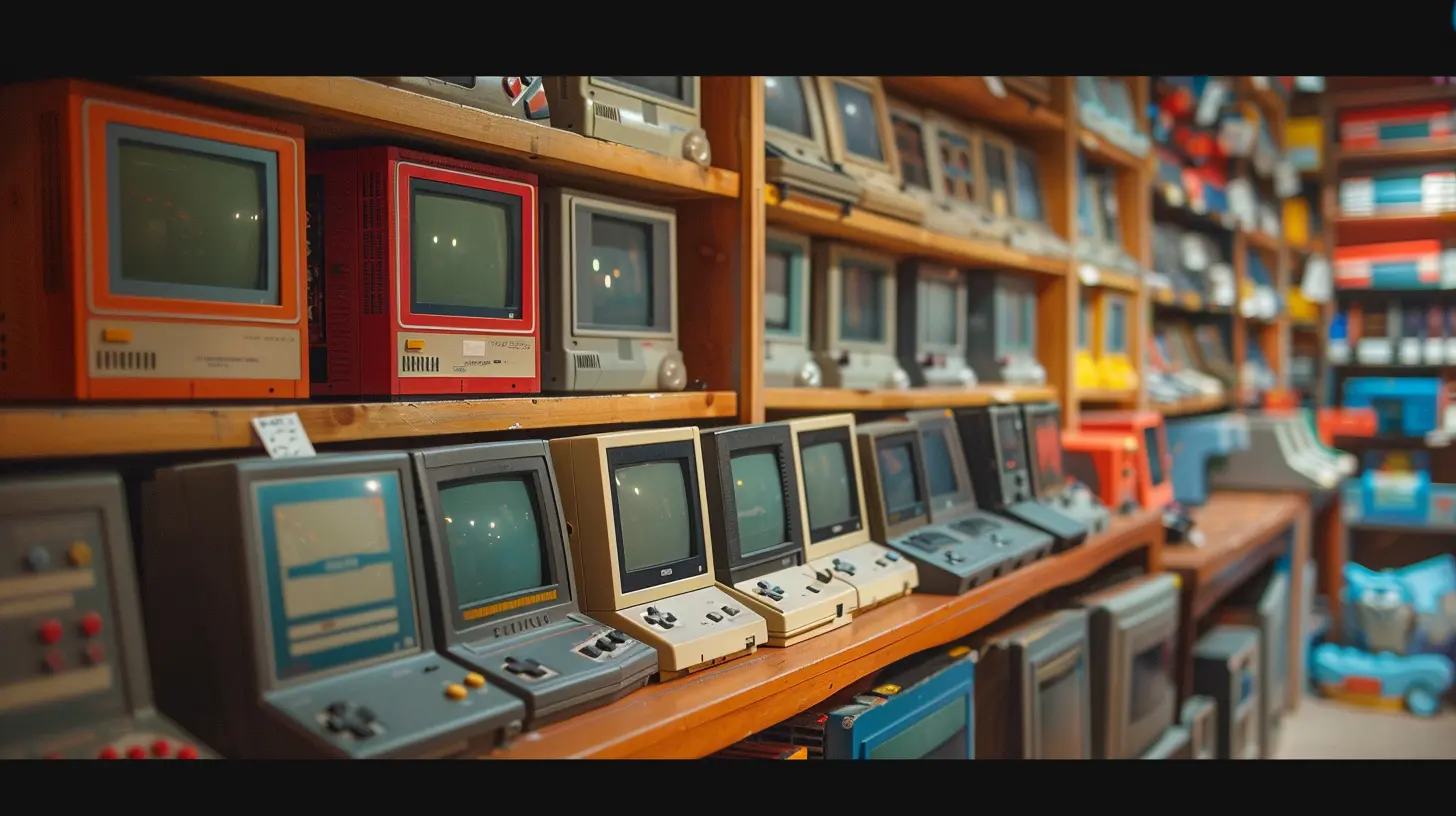
The Magic of Memory: Why Retro Games Stick With Us
So, what is it about retro games that makes them so unforgettable? Why do they linger in our minds like old friends?Simplicity in Complexity
Do you ever miss how uncomplicated games used to be? Retro games didn’t rely on ultra-realistic graphics or complex mechanics to suck us in. They thrived on simplicity. A plumber jumping on turtles' heads to rescue a princess? Sure, why not! A blue hedgehog zipping through loops at breakneck speed? Count us in.Because these games weren’t drowning in complicated narratives or open-world maps with endless side quests, they became more memorable. The core gameplay was pure and straightforward, and oddly enough, that simplicity is why their memories shine so brightly today.
Shared Experiences
Think about how much gaming has changed over the years. Back in the day, there were no massive online servers filled with strangers yelling through headsets. Nope, gaming was a much more intimate experience—passed between siblings, shared with friends on split screens, and battled out in arcades.Remember begging your friend to bring their controller over so you could finally beat Contra together? Retro games created memories we shared with people close to us. Those moments of cooperation (or friendly competition) created emotional bonds, not just with the people we played with but with the games themselves. 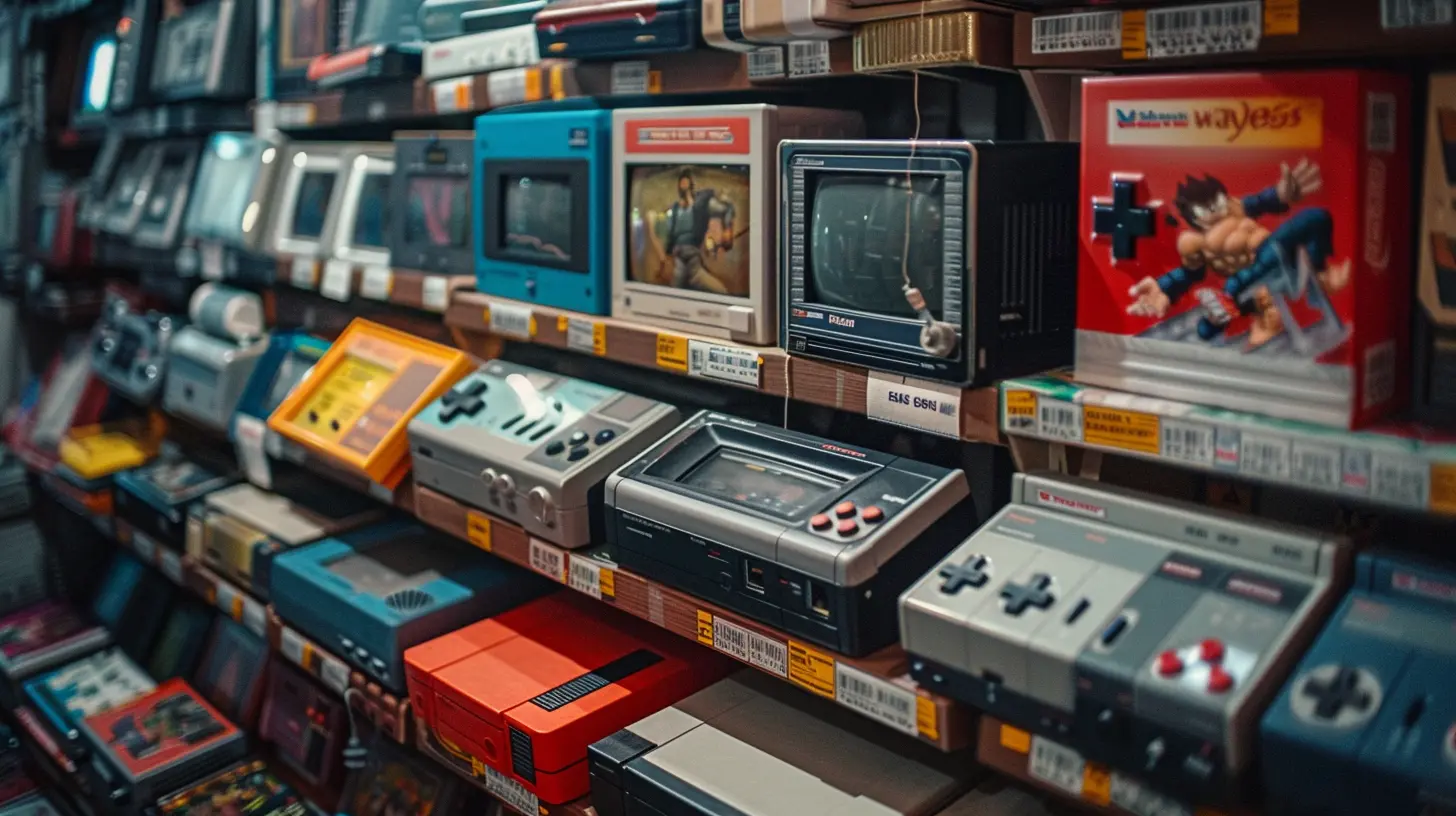
Why Nostalgia Makes Us Keep Coming Back
Fast forward to today, and retro games are everywhere. Originals are prized, digital re-releases are selling like hotcakes, and remakes are dominating the gaming scene. But why do we keep going back to these classics when technology has evolved so far?Comfort in Familiarity
When life gets overwhelming (and let’s be honest, adulting is no picnic), retro games act like a warm hug from the past. They remind us of a time when our biggest concern was beating Bowser, not meeting deadlines.Booting up an old game can feel like flipping through a scrapbook. The sights, the sounds, even the clunky controls—they all transport us back to a time when things felt less complicated. Nostalgia lets us escape to those carefree moments, even if just for a little while.
The Rise of Retro-Inspired Games
You’ve probably noticed modern games borrowing heavily from retro aesthetics. Pixel-art indies like Celeste and Stardew Valley are rocking those classic vibes. And let’s not forget remakes and remasters of beloved titles like Crash Bandicoot N. Sane Trilogy or Final Fantasy VII Remake.It’s clear that developers understand the nostalgic hook. They’re tapping into that emotional connection we have with older games while revamping them for today’s audiences. And honestly? We’re loving it. 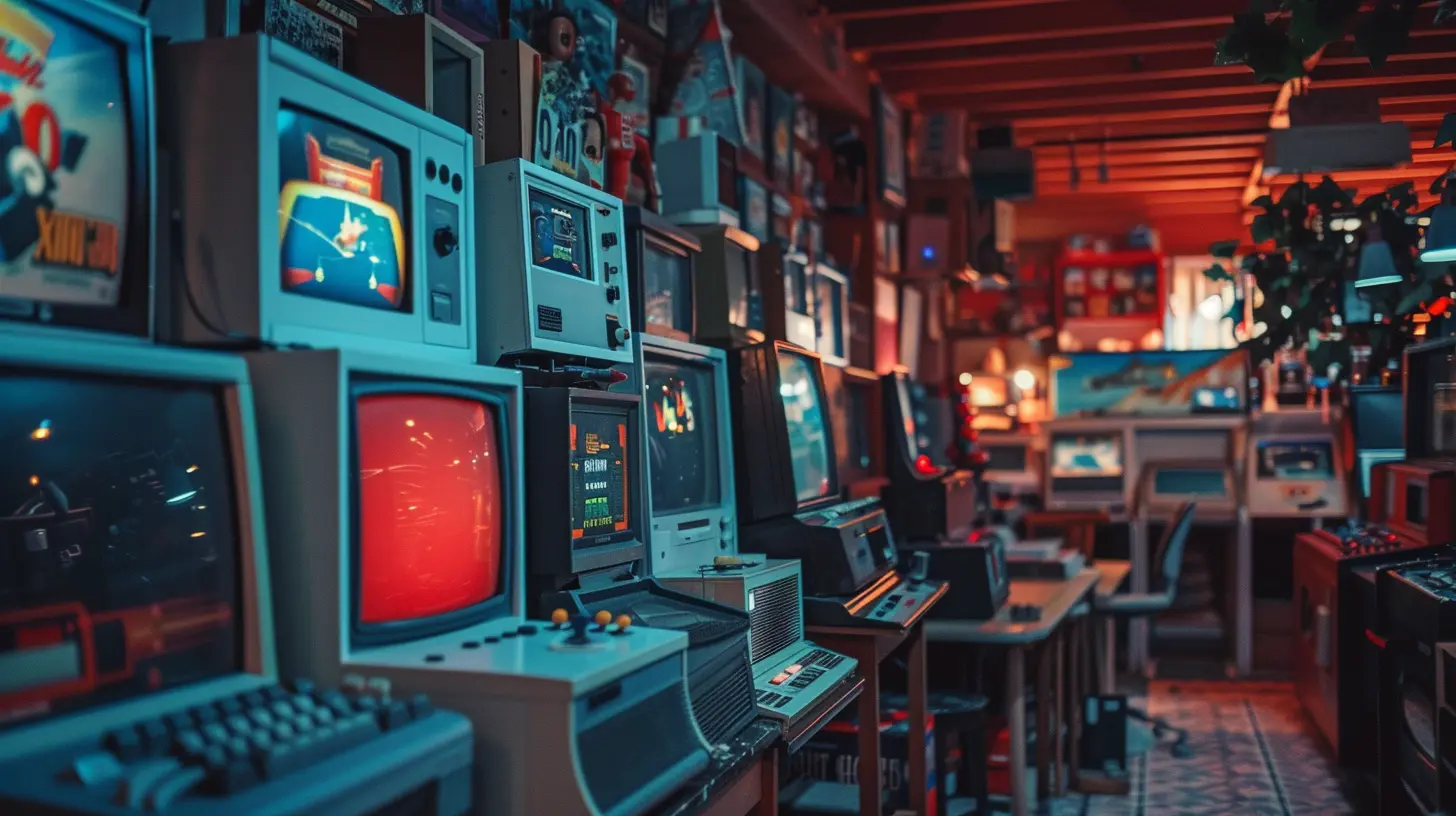
The Popularity of Retro Gaming Communities
One of the best things to come out of the retro gaming revival is the thriving communities that have sprung up around old-school classics. From forums to live streams to Reddit threads, gamers are connecting over their shared love for retro titles.Collectors and Hobbyists
Let’s not forget the collectors out there—those who scour thrift shops and online auctions for rare cartridges and pristine consoles. These hobbyists do more than just collect; they preserve gaming history. Without them, many of these retro gems would’ve been lost to time.Online Emulators and Fan Mods
And then there’s the digital side of things. Emulators have made it possible for gamers to play their childhood favorites on modern devices. Plus, fan mods have breathed new life into retro games, transforming them into something fresh while still holding onto their nostalgic charm.Why Younger Generations Are Jumping Aboard
Here’s the surprising thing: it’s not just millennials and Gen Xers who are obsessed with retro games. Younger generations are joining the party too. But why would someone born after the golden age of Pac-Man or Donkey Kong care about those games?Timeless Gameplay
Even though the graphics are dated, the gameplay of retro titles is timeless. Games like Tetris or Street Fighter II don’t need fancy visuals to be fun. A good game is a good game, no matter how old it is.The “Authentic” Factor
For younger gamers, playing retro titles is almost like time traveling. They’re curious to see where gaming began and experience the foundations of the industry. It’s like watching classic black-and-white movies to better understand cinema—the old stuff gives you a deeper appreciation for today’s masterpieces.How Nostalgia Is Expanding the Gaming Industry
Make no mistake, nostalgia isn’t just tugging on our heartstrings—it’s also big business. The resurgence of retro games, consoles, and remakes has created an entire sub-industry in gaming.Retro Consoles and Collections
Remember the excitement when the NES Classic Edition or the Sega Genesis Mini dropped? These mini-consoles fly off the shelves faster than a Sonic speed run. Why? Because they package nostalgia in a neat little box.Meanwhile, companies like Nintendo and Sony are re-releasing classic libraries via subscription services. It’s easier than ever to revisit the past, and gamers are eating it up.
The Rise of Esports and Speedrunning
If you thought retro gaming was confined to couch sessions, think again. Retro games are making waves in competitive gaming, too. Speedrunning—completing games as fast as possible—has become a massive phenomenon, with retro titles like Super Metroid and Mega Man being fan favorites.Final Thoughts
Nostalgia is a powerful thing. It transforms retro games from outdated relics to emotional treasures. It bridges generations and keeps the stories of gaming’s past alive and well. Whether you’re dusting off your old Game Boy or firing up an emulator, you’re not just playing a game—you’re connecting with a piece of history.So, next time you hear the opening notes of an old chiptune soundtrack or feel the urge to tackle a classic level, embrace it. Because it’s not just about the game—it’s about the memories, the moments, and the magic that made us fall in love with gaming in the first place.
all images in this post were generated using AI tools
Category:
Retro GamesAuthor:

Greyson McVeigh
Discussion
rate this article
1 comments
Erica Hudson
Nostalgia serves as a powerful bridge between generations, igniting fond memories and shared experiences that keep retro games alive. By blending familiar mechanics with modern storytelling, developers tap into this emotional connection, ensuring these classics not only endure but thrive, inspiring new audiences while celebrating their rich history.
August 11, 2025 at 3:33 AM

Greyson McVeigh
Absolutely! Nostalgia not only preserves retro games but also enriches them, inviting new players to appreciate their timeless charm while honoring their legacy.

